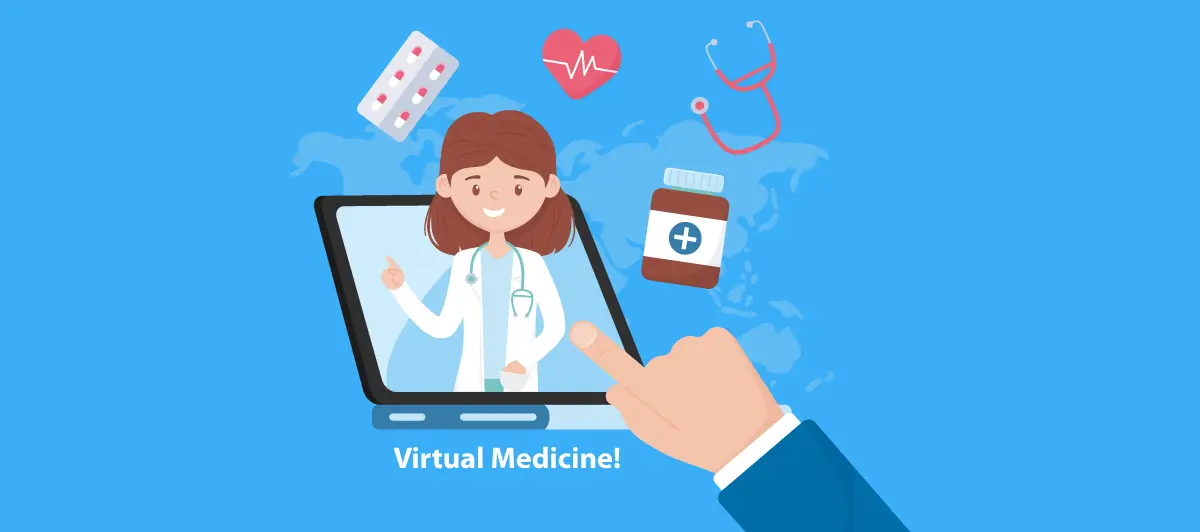What is Virtual Medicine? Benefits, Future And More
Quick Summary: Are you thinking about what virtual Medicine is? It is a pioneering healthcare approach that harnesses technology to provide remote diagnosis, treatment, and patient care. It seamlessly integrates Telemedicine, virtual reality, and digital health solutions to enhance healthcare accessibility and convenience.
Introduction
Virtual Medicine is a model in which doctors or healthcare professionals deal with patients from a distance using communication technologies such as video chat, mobile app, or telephone. With new tools and technology that can track, monitor, and analyze monitors remotely. But when did telehealth start? Virtual visits are a great way to replace traditional in-person visits. Although it was used beforehand after COVID-19, its usage escalated.
Virtual care is often used interchangeably with Telehealth or Telemedicine. As healthcare organizations started adopting the usage of virtual healthcare, about 33% of patients began using it by 2020. In the first quarter of 2020, the total revenue of the virtual care industry was $788 million. To everyone’s surprise, this leap was about 200% compared to 2019.
This insane growth in adopting virtual care technologies is compelling everyone to use it. The best part is that it benefits everyone in the industry, such as patients, medical specialists, and authorities. Many are still seeking to understand What is Virtual Medicine? Keep reading to understand.
What is Virtual Medicine?
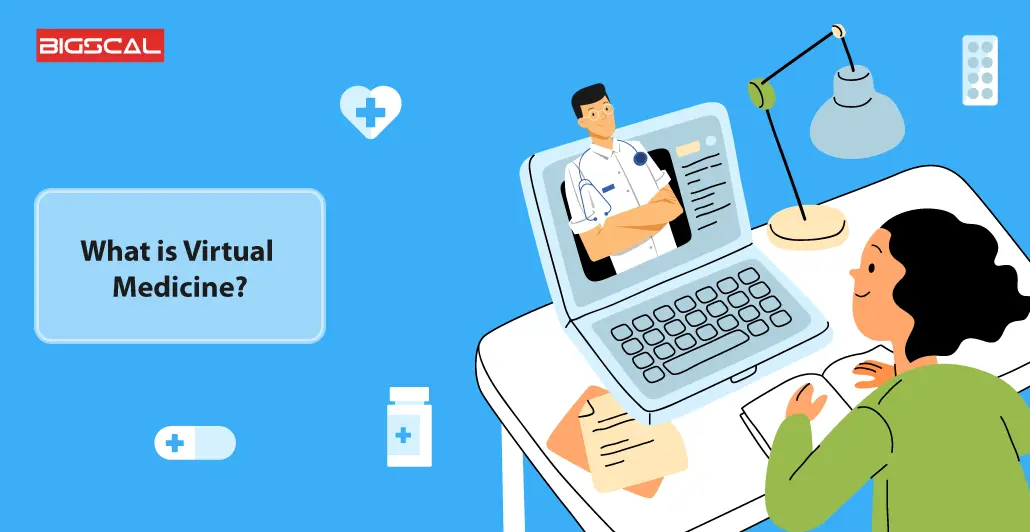
How many of you have frequently heard of terms like virtual healthcare, virtual care services, virtual consultations, or virtual visits? Almost everyone, right? Hence, you might be familiar with the concept behind virtual Medicine.
Virtual care includes specific tools and software for healthcare providers and nurse practitioners to impart better patient outcomes and quality care. The care teams seek help from technology like mobile devices or computers for better access.
Additionally, Telemedicine can bridge the gap between the provider’s office and the patient, irrespective of the location. A patient or family member can contact a specialist or physician without moving to the provider’s office. Hence, this is all you have to know regarding virtual care.
Is Virtual Medicine Different From Telehealth and Telemedicine?
As a short answer to what is virtual medicine, it is the alliance between providers and patients to examine, monitor, and treat issues like infectious diseases or chronic conditions. Hence, it is all segments of virtual healthcare management. But now, that is not the same as telehealth or Telemedicine.
But when there is a thought that telehealth technology is the primary term under which the period of virtual Medicine falls. It is a broader term that covers things like remote monitoring, medicine delivery, and even many technologies that help conduct tests.
On the other hand, Telemedicine means dealing with patients by providers without contacting them directly. Hence, this can be helpful for chronic conditions where diagnosis is already done. Providing care to older populations and people with lesser mobility is most beneficial.
At last, virtual care refers to the interaction between providers and patients on a remote basis using mobile devices, software, and video chats. Rather than just diagnosis, it aims to track medical history and monitor patients for a long time. Want to know more about what is virtual medicine? Keep reading.
What are the Benefits of Virtual Health Care for Healthcare Organizations?
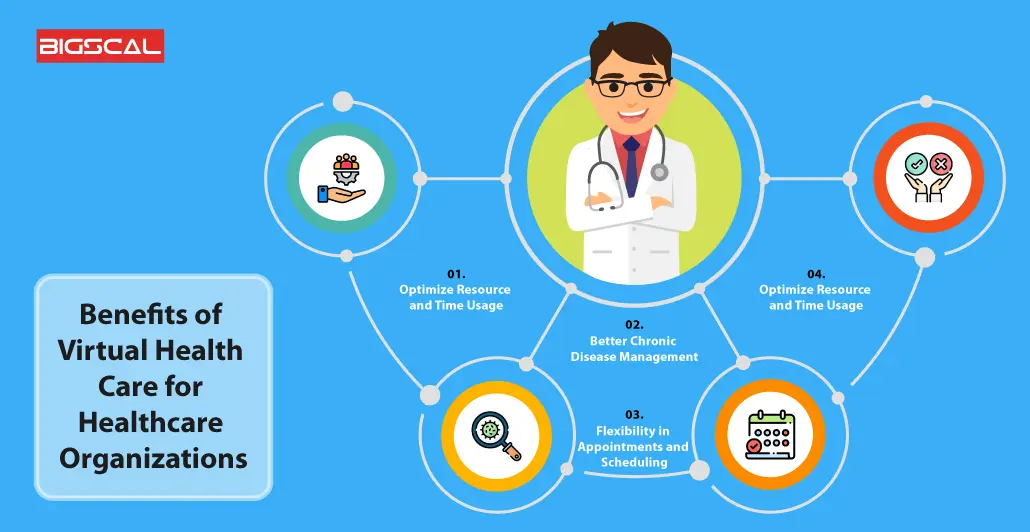
Optimize Resource and Time Usage
Primary care providers or doctors can arrange appointments suitable for virtual care to save time spent on each patient’s care. It is a fact that not every patient, like people with slightly high blood pressure fluctuations, needs physical visits. Hence, as a provider, you can save time and resources. Just having internet access can reduce wait times at the provider’s office.
Better Chronic Disease Management
When managing chronic diseases, virtual Medicine can work wonders because it needs continuous monitoring. Hence, telehealth options like remote monitoring can help practitioners stay in touch to provide better care. Modern mobile apps help providers map patients’ progress and check personal health records without them visiting the clinic.
Flexibility in Appointments and Scheduling
With virtual visits, providers can manage their schedules quickly rather than spending time on unnecessary follow-up appointments. A virtual visit session is like a video call where data sharing is easy. Remote care is easy for patients and professionals as it does not end up in the waiting room.
Better Decision-Making for the Doctors
As a vast amount of doctors and specialists are available on online portals, a provider can consult to make tough decisions easier. The software can directly integrate with protected health information and patient’s medical records to better understand their health. Hence, for a person in medical practice, it makes the decision-making process more manageable. Moreover, it helps patients get the highest quality care.
What are the Benefits of Virtual Health Care for Patients?
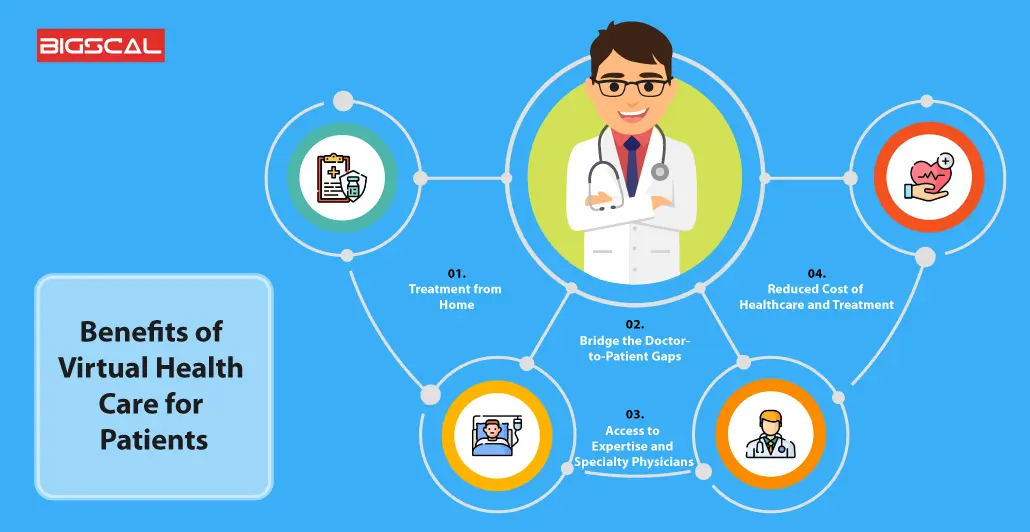
Treatment from Home
One of the most admired benefits of virtual care is seeking best-in-class treatment from specialists from their homes. No matter if it’s for behavioral health or mental health, you have solutions without stepping out. It’s not only a matter of convenience but also of social distancing, which is necessary.
Bridge the Doctor-to-Patient Gaps
To date, it is a harsh truth that people in rural areas have to deal with a lack of healthcare organizations and specialists. As per data from NRHA, there are areas with less than 40 doctors per 100,000 people. People in those areas find it challenging to seek primary care; usage of virtual visits can bridge the gap. Doctors from any end of the world can consult patients without spending any amount on traveling or other activities.
Access to Expertise and Specialty Physicians
There are many instances when a lack of specialists in the organization hinders the timely treatment process, which can lead to death. Hence, virtual care can be a savior to seeking medical care, letting any specialist assess patients at any spot. It could be life-saving for millions of patients who die from skill deficits.
Reduced Cost of Healthcare and Treatment
According to a recent blog from Harvard Health, virtual care costs only half the amount that one spends on in-person visits. Virtual visits help a doctor diagnose symptoms online while there is no waiting issue or travel costs. Hence, one can even quickly obtain reports or prescriptions online. Moreover, medicines can also be purchased online.
Future of Virtual Healthcare
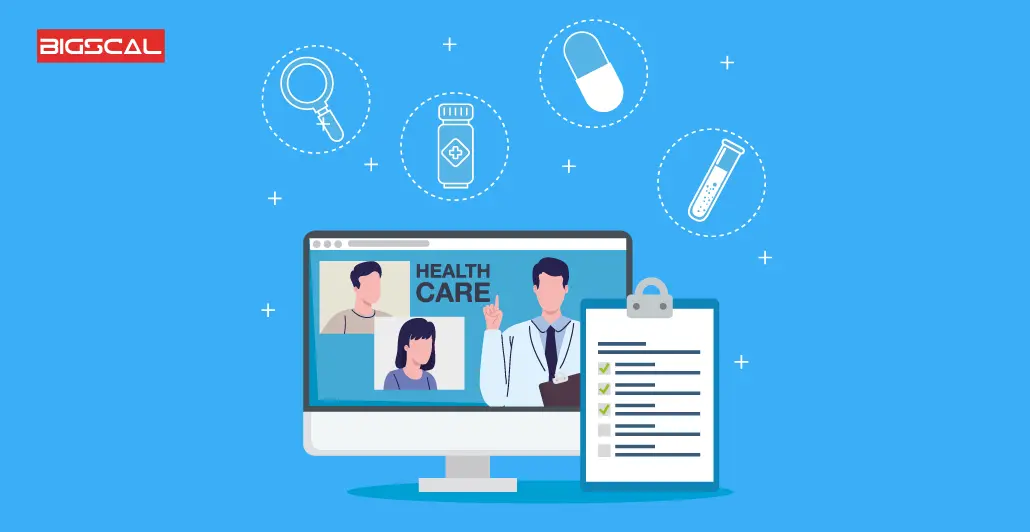
The healthcare industry is one among the list of businesses. Hence, it has to compete by expanding the ways to provide health care. For this, many healthcare organizations have started using virtual care technologies.
With an answer to what is virtual medicine its future seems to be appealing. Hence, it is clear that the future of virtual health is bright and promising. Virtual care is here to stay. As people have started adopting its usage, a comprehensive list of telemedicine companies is emerging. People now don’t prefer visiting doctors in person for essential treatments
Older patients are the ones who can make the most out of virtual care services. Additionally, they were the group at high risk in the pandemic era. Hence, care providers could quickly treat them from a distance.
Although there might be certain legality and safety concerns for now, they might be dealt with in the future. Virtual care is an excellent supplement to the traditional system. From now on, you can see many new companies investing in custom healthcare software development to explore its benefits.
Technology trends that open the doors to virtual clinics, health services, and hospitals are all fascinating until we look at the other side: the challenges for future virtual healthcare development. So, we are not out of the woods yet; let us dive into the list of challenges and gear up accordingly.
Why is Bigscal the best choice for virtual medicine app development?
While virtual health applications continue to gain traction among medical professionals and patients, the primary challenge lies in securing high-quality telemedicine video conferencing solutions that enhance efficiency and productivity and safeguard privacy.
The road to achieving this is more complex than it may initially appear. Therefore, virtual health apps are but a single component within the broader healthcare ecosystem. These apps’ coding often consists of input data that can be created with the patient’s profile or with medical records, test results, and medical records.
The Bigscal’s software development streamlines the complex way healthcare systems work. This makes it the leading healthcare software development company. We produce health applications adapted to specific needs where they provide complete solutions to doctors’ virtual health world. Using the exclusive technology and the team with a lot of experience in the development of projects er of decades, Bigscal has helped some clients to see their issues resolved.
Conclusion
Being ended up with this text should definitely help you to clarify yourself entirely with what is virtual medicine? Undoubtedly, the Virtual Medicine being brought about is a groundbreaking and a transformative shift in the paradigm of healthcare. It centres around the role technology is playing in the effort to close space and time divides, the expansion of coverage, and the imparting of new medical control to patients.
With the utilization of the telehealth, data analytics, and virtual reality techniques, it changes the physical boundaries and builds more fruitful the doctor-patient communication. Virtual Medicine is not simply an app, it’s a revolution that has the power of baby democratizing health care globally.
With time, development of the telehealth industry require healthcare providers and the law makers to catch up, especially making sure that the case quality doesn’t decline where in it does matter if the patient and the physician are in different locations.
FAQ
What is the difference between telehealth and virtual care?
Distant healthcare is a much more extensive umbrella term including not only consultations but also monitoring and educating. Virtual communication is a sub-category of telehealth, more specific, with the digital apparatus for medical, like video consultations and remote monitoring as an example.
What is virtual medicine? Is it worth it?
Absolutely. Virtual care is a platform that provides convenience, accessibility in reasonable rates. It can be used at a distance or any place where a computer is available and a web connection is available. It is irreplaceable in performing the regular check-ups, treating long-term illnesses, and plus, it has been proven to provide healthcare to the people living in areas where that service was scarce. This is true to say that one of the factors shows in achieving better patient outcomes and reducing healthcare disparities.
What are the benefits of virtual health?
Virtual health opens doors to many advantages like accessibility, shrinking probably the time of travelling, instant consultations, increased patient engagement, and the opportunity of being cost-effective. If used appropriately it can be very useful for treating a number of diseases at no less cost and for patients to obtain better feel of doctors.
Why is virtual care critical in healthcare?
While the virtual care has its multiple benefits in modern medicine, the virtual care is worth studying because of several reasons. It enhances reachability barriers, for example in isolation or underprivileged people. It alleviates some of the stress on medial facilities, facilitates early detection of the diseases, and provides continual disease management and therefore optimizes the entire health care outcome and efficacy.
Who is eligible for remote patient monitoring?
Remote patient monitoring presupposes a certain medical condition of the patient, which is to be approved by the healthcare professional making recommendations. It is very common with those having chronic conditions such as the hypertension and heart diseases and people who go for the post-surgery or post-hospitalization assessments. Your doctor will assess your condition to evaluate the suitability of remote monitoring, which is designed to meet individual needs.
